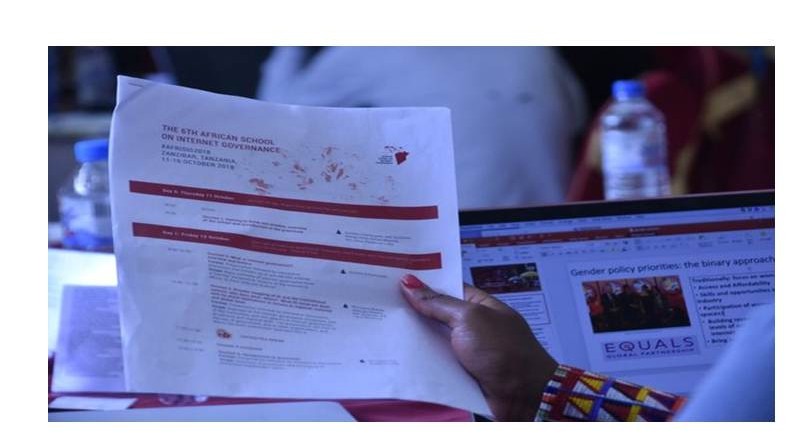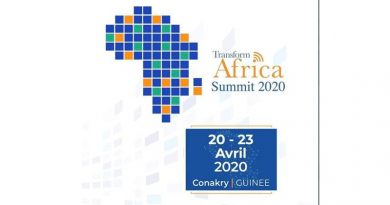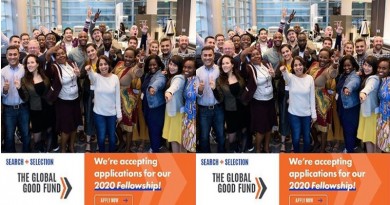Apply for the 7th African School on Internet Governance (AfriSIG) 2019 (Funded)
Application Deadline: Saturday, 1 June 2019.
Do you believe that the internet is a vital platform for social, economic and political development in Africa? Are you a current or potential leader in internet governance forums and debates in Africa? Does your current work or study involve internet or ICT policy and regulation? Do you want to deepen your understanding of the “multistakeholder” approach to internet-related policy making?
Whether you are a policy maker, a researcher, a regulator, an engineer, a journalist, an entrepreneur or a gender equality and human rights defender – if you care about internet policy in Africa, AfriSIG is for you!
The Association for Progressive Communications (APC), the African Union Commission and Research ICT Africa (RIA) are pleased to announce the call for applications for the 7th African School on Internet Governance (AfriSIG). This year the school will be held immediately prior to the African Internet Governance Forum (AfIGF), which will take place in the first half of September 2019. Final dates and location will be confirmed in the coming weeks.
AfriSIG’s primary goal is to give Africans from multiple sectors and stakeholder groups the opportunity to gain knowledge that will enable them to participate confidently and effectively in national, regional and global internet governance processes and debates.
As part of the learning and leadership development process, AfriSIG seeks to give fellows the opportunity to participate actively at the AfIGF as speakers, moderators and rapporteurs. The dates and location of this year’s AfIGF are still to be confirmed.
Curriculum
The School will run throughout six days, and will be structured to include intensive learning and knowledge sharing that covers:
An overview of internet governance concepts, issues and institutions.
Internet architecture, infrastructure, standards and protocols and management of internet names and numbers.
Internet governance and social issues: gender, human rights and development.
Cybersecurity, multistakeholder approaches and emerging issues in internet governance such as algorithms and the “internet of things”.
The highlight of the school is a practicum in which participants have to tackle an actual internet-related policy challenge and come up with an agreed solution or statement.
Requirements:
Applicants who have relevant work experience and/or involvement in internet governance or ICT policy and regulation and who are positioned to make meaningful contributions to strengthening internet governance in Africa, and African voices in internet governance globally.
The School will accept applications from current or emerging leaders and professionals from:
Government ministries and departments, national and regional communications regulatory authorities, and public sector information and communications services such as public libraries.
Members of parliament, particularly if they are involved in parliamentary portfolio committees that deal with media, communications and information technology issues.
Service providers and other businesses who form part of the internet industry.
Civil society and non-governmental organisations who interact with or operate in the internet-related information and communications sector.
Organisations working on women’s rights and gender and how these intersect with technology.
Digital human rights defenders.
Human rights institutions dealing with internet issues, such as national or regional human rights commissions.
Community-based information and communications services and the broader community informatics sector.
The judiciary and other members of the legal community working with internet and communications law.
Members of law enforcement agencies who deal with internet issues.
The cybersecurity sector.
The internet technical community.
Academic and research institutions that deal with internet issues.
Media organisations and outlets that focus on the internet.
Individual bloggers and journalists who cover internet issues.
Costs
Applicants can apply for a scholarship to attend the school. However, given the limited number of scholarships, self-funded and sponsored applicants are encouraged to apply. All participants will be expected to pay their own local transport expenses and visa fees in their country of origin.
Self-funded applicants
Applicants can indicate intention to self-fund or seek sponsorship in their application. The full course fee, which covers accommodation, meals, course material and tuition, is USD 2,000. This excludes travel.
Scholarships
Scholarships will cover air travel, shared accommodation and meal costs for the duration of the School. Successful applicants have the option of staying in a single room, but they would need to cover the additional cost themselves.
Apply now
To apply please complete the form here by Saturday, 1 June 2019. Please note that as part of the application, you will be required to upload a recent CV, two reference letters and a letter of financial commitment should you be self-funded.
For more information, visit the AfriSIG website www.afrisig.org or contact the AfriSIG organiser, Koliwe Majama at afrisig@apc.org.
For More Information:
Visit the Official Webpage of the 7th African School on Internet Governance (AfriSIG) 2019




